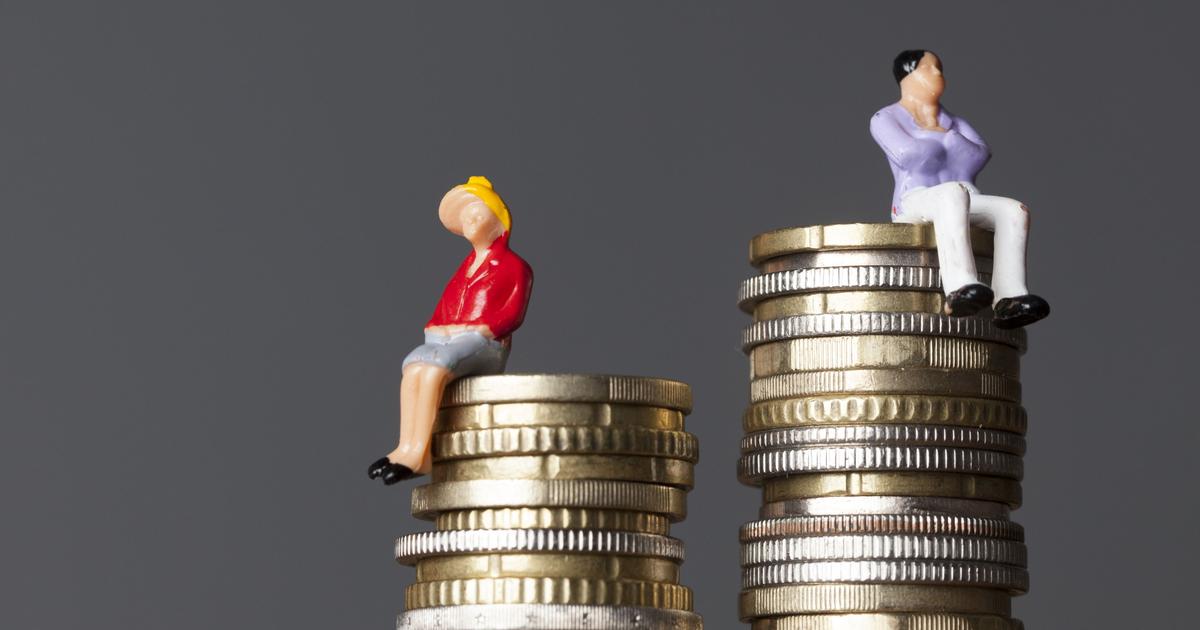- Click to share on Facebook (Opens in a new window)
- Click to share on Twitter (Opens in a new window)
- Click to share on LinkedIn (Opens in a new window)
- Click to email a friend (Opens in a new window)
Editor's Note: Lilly Ledbetter was the plaintiff in the Supreme Court discrimination case Ledbetter v. Goodyear Tire & Rubber Co., and its name is attached to the Fair Pay Act of 2009. The views expressed in this comment are yours. See more opinion articles on CNNE.com.
(CNN) - Everything feels different this Equal Pay Day.
In the weeks leading up to Tuesday, March 31, the day that marks how much more women have to work this year to catch up on what men did last year, I was preparing to jump from state to state to share my History of equal pay with crowds of students and protests by defenders. As sure as forsythia bushes and red bushes bloom in Alabama every spring, I have made my annual trip around the country at this time of year since the Supreme Court denied me justice in my wage discrimination case 13 years ago.
But as the coronavirus spread this year, event after event was canceled. It was too dangerous for health for people to gather. And it is too risky for me to travel; I'm 81 years old after all.
So here I sit at my home in Alabama on Equal Pay Day, alone with my cat, Bushy. The streets and neighborhoods are empty. And like many others, I feel anxious.
The covid-19 pandemic has suddenly revealed the brutal economic reality of low-paid women workers who are on the front lines of this crisis, and I feel a greater sense of urgency in closing the wage gap that continues to narrow them when they can least afford it.
As millions of us take refuge on the spot and telecommute, home health aides are caring for our sick family members, grocery store cashiers and employees give us access to the food and supplies we need to support ourselves healthy, and child care workers keep our children safe. These workers are predominantly women. And they have a high risk of viral exposure in each of these essential jobs. But many lack the basic protections of a living wage, paid sick and family leave, and employer-sponsored health care.
READ: Being a woman on planet Earth is ... one day vs. an eternity of struggle for equality
Every day, thousands lose their jobs unceasingly and without financial protection, as companies in all sectors abruptly close.
These women face a cruel double blow: They are being hit by the economic tsunami of the pandemic along with the lost earnings from the gender pay gap that pays them less than men doing the same job. A new analysis by the National Women's Law Center shows that 85% of personal care and home health aides are women, and they are losing $ 5,000 each year due to the wage gap, based on the difference between annual earnings. means of men and women.
About 93% of child care workers are women, and according to the NWLC analysis, they are paid a median of just $ 22,000 per year, while men in those same positions receive a median of $ 27,000 per year. .
This means that childcare workers lose $ 5,000 each year due to the gender pay gap.
Similarly, 70% of restaurant waiters are women: the pay gap deprives them of $ 6,000, based on estimates of the average annual earnings of men and women. Women of color are a large percentage of the workers who hold these jobs and face the highest wage losses of all because they experience a gender and racial pay gap.
MIRA: What percentage of labor inequality is there between women and men today?
Imagine if the balance of those lost wages, the money they deserve in a fair society, were available to them now. You could help a child care worker, waitress, health care assistant, and many other underpaid workers put food on the table, pay for medications and other health care expenses, or cover rent and avoid eviction.
Even in the best case scenario, most women in the underpaid workforce have always lived on the razor's edge. A child becomes ill. A car breaks down. Childcare falls. Hours are cut. It does not take a pandemic to throw so many women and families into economic ruin. But perhaps a pandemic is needed for the rest of the country to realize it.
READ: Paraguayan Congress approves economic laws to face coronavirus crisis
I keep thinking about the fourth grader at a school in Alabama many years ago who, after finishing my presentation, quietly raised his hand and said that if his mother couldn't work, they wouldn't have enough to eat at home.
I think of the waitresses who worked the morning shift in hotels and the women who passed me at airports and stopped to share their own struggles for equal pay. Their stories are similar. They work hard to support their children, but they can never make ends meet. They depend on neighbors to care for their children when their hours change at the last minute. They cannot afford to miss a day of work. What will happen if they or their children get sick with the coronavirus?
If there will be a silver lining to this pandemic, when it ends, hopefully we will remember what we saw and who was hurt. Let's never forget the workers who demonstrated courage and commitment during the crisis, as they always have.
Let this public health crisis be a catalyst to support economic protections, such as raising the minimum wage, offering paid sick days, and expanding health insurance.
And make it a catalyst to finally close the wage gap.
Equality Salary








